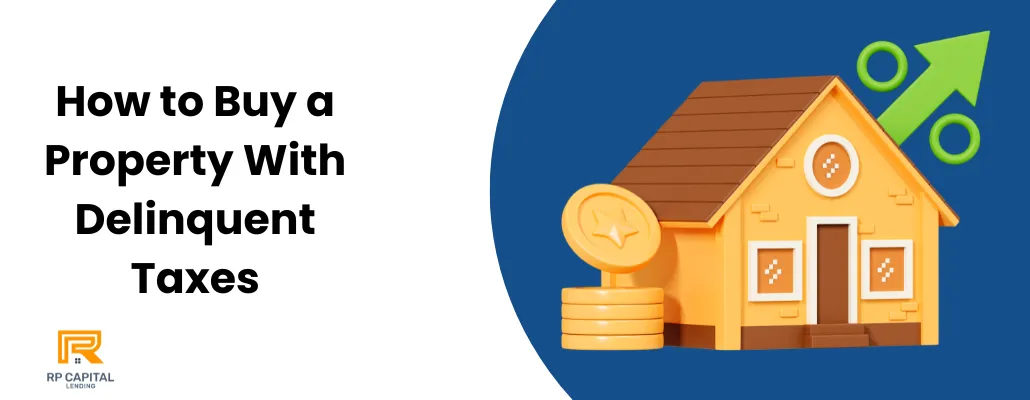Blog

How to Buy a Property With Delinquent Taxes
Buying a property with delinquent taxes can be a lucrative opportunity for real estate investors, but it's a complex process that requires careful research and a thorough understanding of the legalities involved. In this comprehensive guide, we will walk you through the steps to successfully acquire a property with delinquent taxes and maximize your investment potential.
Understanding Delinquent Taxes
Before diving into the process, it's crucial to understand what delinquent taxes are. Delinquent taxes occur when a property owner fails to pay their property taxes on time. When this happens, the local government can place a tax lien on the property, giving them the right to collect the overdue taxes.
Research and Identify Potential Properties
The first step in buying a property with delinquent taxes is to identify potential properties. You can start by visiting the county tax assessor's office or checking online databases to find a list of properties with delinquent taxes. This list will typically include details such as the property's address, owner's name, and the amount of overdue taxes.
Conduct Due Diligence
Once you've identified potential properties, it's essential to conduct thorough due diligence. This includes:
1. Property Inspection
Visit the property in person to assess its condition. Delinquent tax properties may require repairs or renovations, so it's essential to estimate the cost of these improvements.
2. Title Search
Perform a title search to ensure there are no other liens or encumbrances on the property. You want a clear title when you purchase the property.
Attend Tax Auctions
Many counties hold tax auctions to sell properties with delinquent taxes. Attending these auctions can be an opportunity to acquire a property at a lower cost. Here's what you need to know:
1. Auction Process
Understand the auction process, including bidding rules, payment methods, and any required deposits.
2. Set a Budget
Set a budget for the auction and stick to it. It's easy to get caught up in the bidding, so having a limit in mind is crucial.
Winning the Auction
If you successfully win the auction, you'll need to pay the winning bid amount. Here's what comes next:
1. Redemption Period
In some states, there is a redemption period during which the property owner can reclaim the property by paying the overdue taxes. Be aware of this period and its duration.
2. Eviction Process
If the property owner doesn't redeem the property, you may need to go through the eviction process to take possession.
Renovate and Resell or Rent
Once you have ownership of the property, you can decide whether to renovate and sell it for a profit or rent it out for a steady income. Both options can be profitable, depending on your investment goals.
Conclusion
Buying a property with delinquent taxes can be a lucrative investment opportunity if approached with careful research and a solid strategy. It's essential to understand the legalities, conduct due diligence, and be prepared for the auction process. With the right approach, you can turn these properties into profitable assets in your real estate portfolio.
FAQs
1. Can anyone buy a property with delinquent taxes?
Yes, anyone can participate in tax auctions and buy properties with delinquent taxes, but it requires careful research and preparation.
2. What happens if the property owner redeems the property during the redemption period?
If the property owner pays the overdue taxes within the redemption period, you will not gain ownership of the property, and you may receive a refund of your winning bid.
3. Are there risks involved in buying properties with delinquent taxes?
Yes, there are risks, such as property condition, legal issues, and the possibility of the property owner redeeming it. Conducting thorough due diligence is essential to mitigate these risks.
4. How can I finance the purchase of a property with delinquent taxes?
You can finance the purchase through personal funds, loans, or partnerships with other investors. Each option has its advantages and disadvantages.
5. What should I do if I encounter legal issues with a property purchased with delinquent taxes?
Consult with a real estate attorney who specializes in tax-related matters to navigate any legal challenges that may arise.
Disclaimer: Loans only apply to non-owner occupied properties. Rates, terms and conditions offered only to qualified borrowers, may vary upon loan product, deal structure, other applicable considerations, and are subject to change at any time without notice.
Copyright © 2025. All Rights Reserved.


